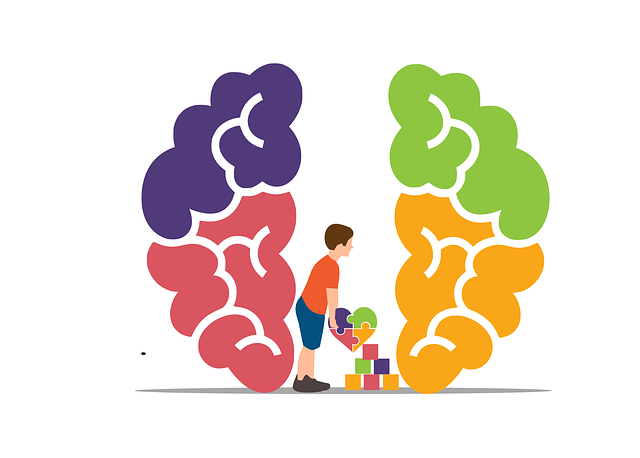Lakewood's specialized PTSD therapy offers a comprehensive, holistic approach addressing deep mental health challenges. Using evidence-based techniques like exposure therapy, cognitive processing, and mindfulness meditation, this program empowers clients to confront traumatic memories and reframe negative thought patterns. Mental wellness coaches provide personalized support, facilitating open dialogue, journaling exercises, and community workshops. The program focuses on short-term relief and long-term resilience, incorporating CBT and stress management techniques to proactively prevent depression. Success is measured through emotional healing progress, enhanced coping mechanisms, and access to trauma support services, with notable effectiveness shown through case studies and client narratives.
Mental wellness coaching programs are gaining prominence as innovative tools for PTSD recovery. This comprehensive guide explores the development of such programs, focusing on Lakewood Post-Traumatic Stress Disorder (PTSD) therapy as a case study. We delve into the critical role mental wellness coaches play in PTSD treatment, offering tailored support and evidence-based techniques. Through this article, readers will discover effective strategies for designing coaching programs and measuring success, ultimately enhancing the impact of PTSD therapy.
- Understanding Lakewood Post-Traumatic Stress Disorder (PTSD) Therapy: A Comprehensive Overview
- The Role of Mental Wellness Coaches in PTSD Treatment
- Designing Effective Coaching Programs for PTSD Recovery
- Incorporating Evidence-Based Techniques in Coaching Sessions
- Measuring Success and Evaluating the Impact of PTSD Coaching
Understanding Lakewood Post-Traumatic Stress Disorder (PTSD) Therapy: A Comprehensive Overview

Understanding Lakewood Post-Traumatic Stress Disorder (PTSD) Therapy involves recognizing its unique approach to addressing a profound mental health concern. This comprehensive therapy delves into the root causes and symptoms of PTSD, offering a holistic healing process. In a supportive environment, individuals engage in various techniques tailored to their needs, such as exposure therapy, cognitive processing, and mindfulness meditation. These methods empower clients to confront traumatic memories, reshape negative thought patterns, and develop effective coping mechanisms.
The implementation of a Community Outreach Program can further enhance access to Lakewood PTSD Therapy, ensuring that support reaches those who might otherwise face barriers. By integrating this therapy into broader mental health initiatives, including advocacy and policy analysis, the community can foster a culture of resilience and well-being. This multi-faceted approach not only benefits individuals with PTSD but also contributes to the overall mental wellness of the community as a whole.
The Role of Mental Wellness Coaches in PTSD Treatment

Mental wellness coaches play a pivotal role in PTSD treatment, offering specialized support and guidance tailored to individuals’ unique experiences. These coaches employ various effective strategies, such as cognitive behavioral therapy techniques, mindfulness practices, and trauma-focused interventions, to assist clients in navigating their symptoms and fostering resilience. By facilitating open dialogue and providing a safe space, coaches help individuals process traumatic memories, develop healthy coping mechanisms, and regain a sense of control over their lives.
In the context of Lakewood Post-Traumatic Stress Disorder Therapy, mental wellness coaches work collaboratively with clients to identify specific triggers and design personalized stress reduction methods. They may also encourage participation in Stress Management Workshops organized by local community centers or support groups, enhancing coping skills through group activities and shared experiences. Additionally, coaches offer Mental Wellness Journaling Exercise Guidance, helping individuals track their emotions, thoughts, and progress while promoting self-awareness and reflection.
Designing Effective Coaching Programs for PTSD Recovery

In designing effective coaching programs for Post-Traumatic Stress Disorder (PTSD) recovery, a nuanced approach is required to cater to the complex needs of individuals dealing with this mental health challenge. These programs should be tailored to help clients navigate their traumatic experiences and develop coping mechanisms, focusing on both short-term relief and long-term resilience. The process begins with a comprehensive risk assessment for mental health professionals, ensuring they are equipped to handle the potential intensity of PTSD symptoms. This includes training in burnout prevention, as coaches play a vital role in supporting individuals through challenging emotional territories.
Community outreach program implementation is another strategic aspect. By reaching out to communities affected by trauma, whether through natural disasters or man-made events, coaching programs can offer timely support. These initiatives should be inclusive and accessible, addressing the specific cultural and social factors that might influence an individual’s journey towards recovery. The goal is to foster a sense of safety and trust, enabling clients to openly process their traumatic memories and develop personalized strategies for managing PTSD symptoms.
Incorporating Evidence-Based Techniques in Coaching Sessions

Incorporating evidence-based techniques into coaching sessions is paramount for effective mental wellness programs. Techniques such as cognitive behavioral therapy (CBT), a well-researched approach, can help individuals challenge negative thought patterns and develop healthier coping mechanisms. By integrating CBT with other proven strategies like mindfulness practices, resilience-building exercises, and stress management techniques, coaches can create a comprehensive framework for supporting clients’ mental health.
This holistic approach not only equips individuals with tools to manage existing conditions like Lakewood Post-Traumatic Stress Disorder (PTSD) therapy but also serves as a proactive measure against depression prevention. Through structured coaching sessions that leverage these evidence-based methods, individuals can foster resilience, enhance emotional well-being, and cultivate sustainable mental wellness.
Measuring Success and Evaluating the Impact of PTSD Coaching

Measuring success and evaluating the impact of PTSD coaching is a multifaceted process that goes beyond simple numbers. It involves tracking participant progress in emotional healing processes, enhancing coping mechanisms, and integrating effective trauma support services. By employing qualitative and quantitative methods, coaches can assess improvements in symptoms associated with Post-Traumatic Stress Disorder (PTSD), such as reduced flashbacks, nightmares, and anxiety.
Regular assessments, feedback sessions, and self-reported progress reports help in gauging the efficacy of coaching interventions. Moreover, client testimonials and case studies provide valuable insights into the transformative power of empathy building strategies incorporated within these programs. In Lakewood, for instance, PTSD therapy has shown significant promise in empowering individuals to reclaim their lives through tailored Emotional Healing Processes.
Mental wellness coaching programs, particularly those designed for individuals with Lakewood Post-Traumatic Stress Disorder (PTSD), have proven to be powerful tools in the journey towards recovery. By integrating evidence-based techniques and a personalized approach, coaches play a pivotal role in supporting those affected by PTSD. Effective coaching programs not only help clients manage symptoms but also foster resilience and improved quality of life. Measuring success through regular evaluations ensures that these programs remain tailored to individual needs, ultimately enhancing the overall impact of Lakewood PTSD therapy.














